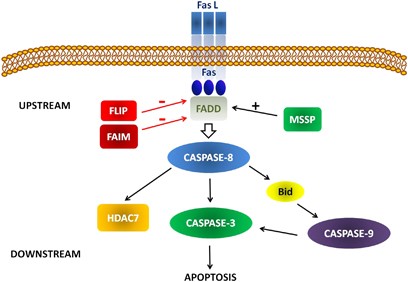The thymus is the principal organ for developing immune-competent T cells from the ground up, which can recognize a wide range of antigens. 98 percent of thymocytes die as a result of apoptosis during development.
This is why apoptosis is the dominant process in the thymus. It is caused by negligence or negative selection or by induction caused by stress or aging. Caspase activation is an important part of the general apoptosis mechanism. You can know more about the Caspase-8 antibodies online.

Image Source: Google
Caspase-8 is activated on double-positive (DP) cells and may be activated in the laboratory in DP cells by The T-cell receptor (TCR) crosslinking that triggers the death of cells.
Caspase-8 is a proapoptotic component of the family known as caspase and is thought to be an initiator caspase that is activated by stimulation of a death receptor (e.g., Fas) and the recruitment of FADD, the adaptor molecule, and the subsequent recruitment of procaspase-8.
The main role of caspase-8 appears to be pro-apoptotic. TCR-induced thymic apoptosis, death receptor-mediated thymic apoptosis, and glucocorticoid-induced thymic apoptosis are the three types of thymic apoptosis.
Concerning TCR activation, the caspase-8 protein is present in medullary semi-mature antigen that is heat-stable (Hashi SP) cells as a result of intense TCR stimulation. These death receptors FADD, Fas, and FLIP are involved in the upstream process of activation of caspase-8 in the process of apoptosis. However, HDAC7 and Bid are involved downstream of the caspase-8.

